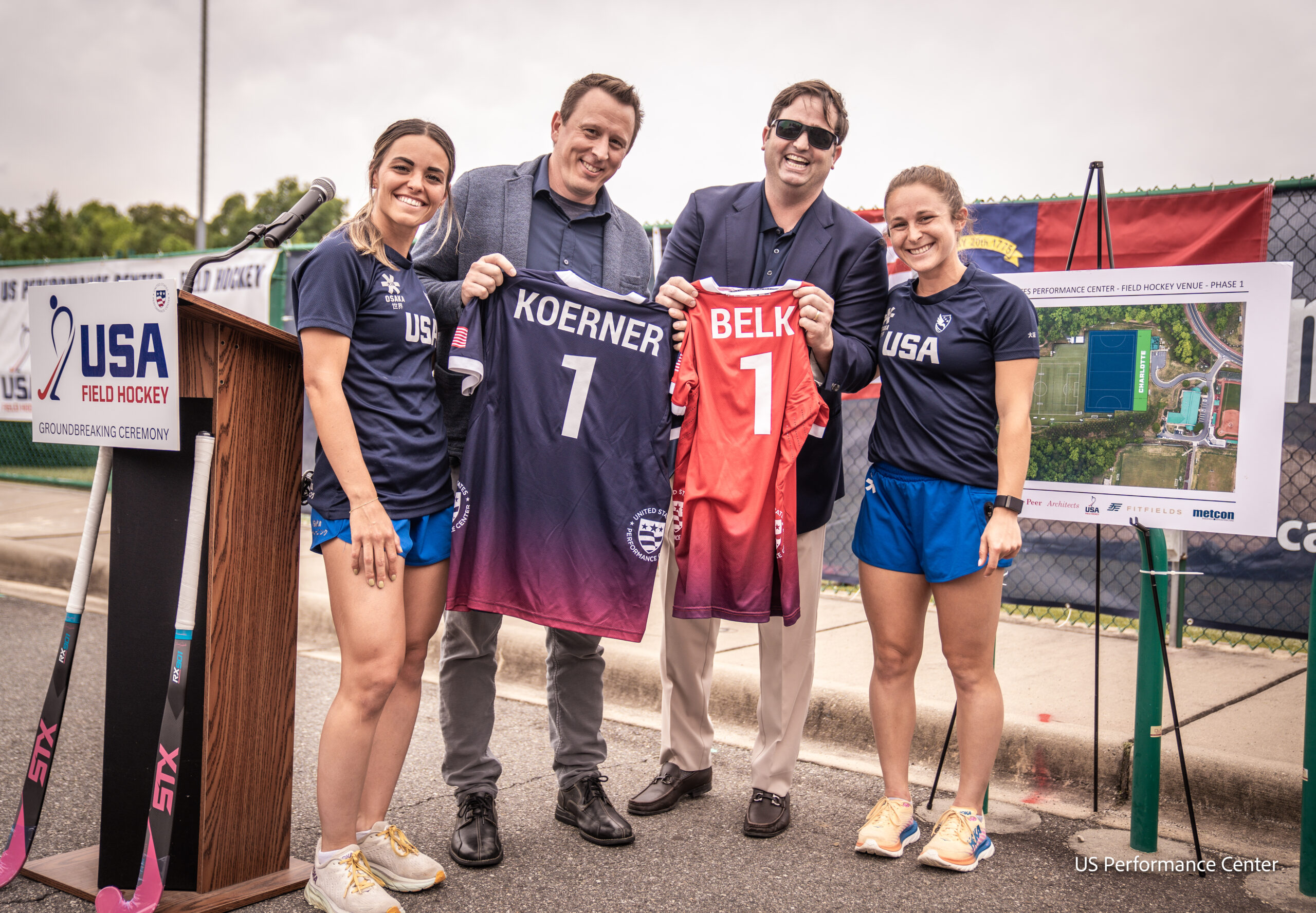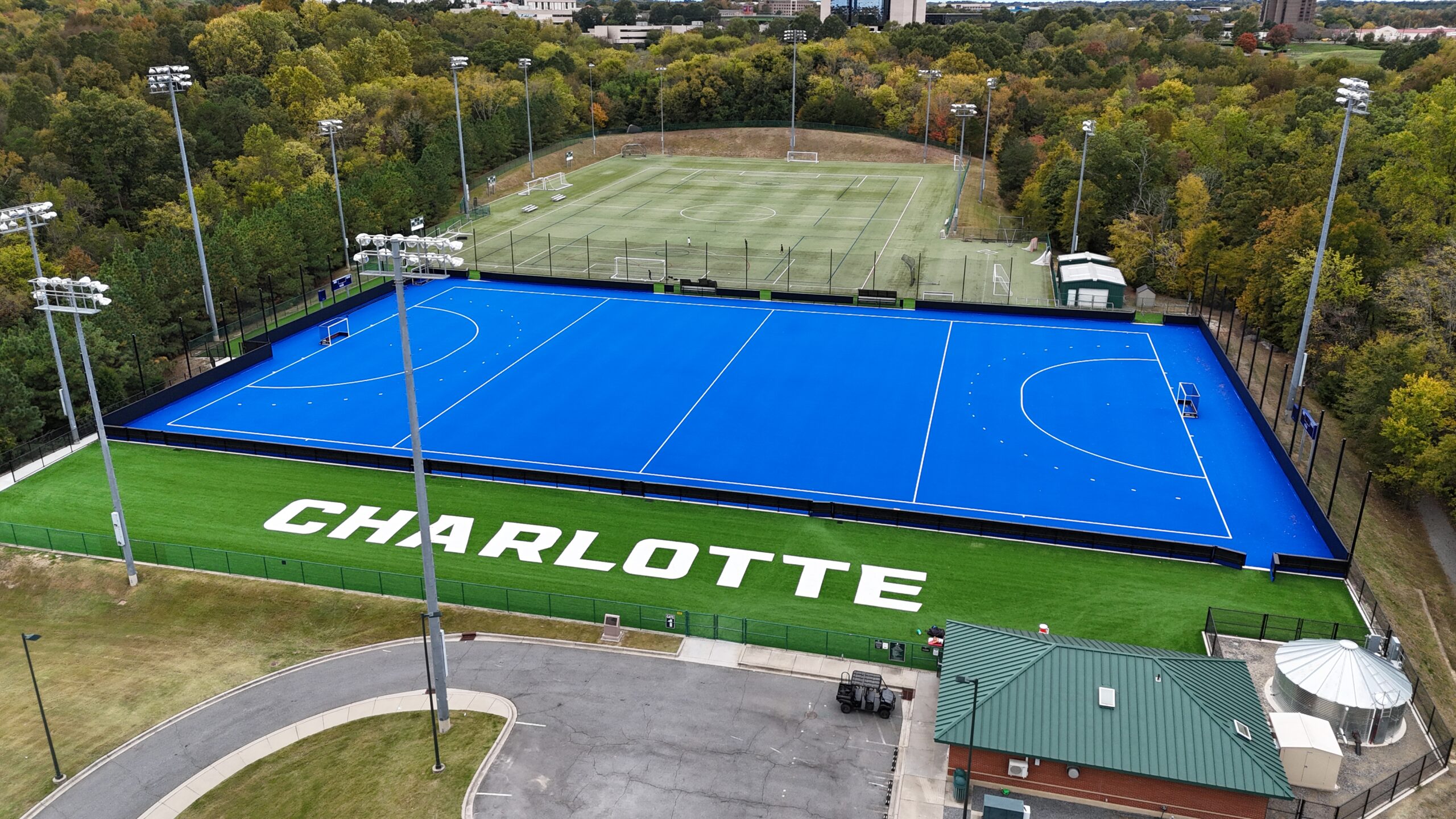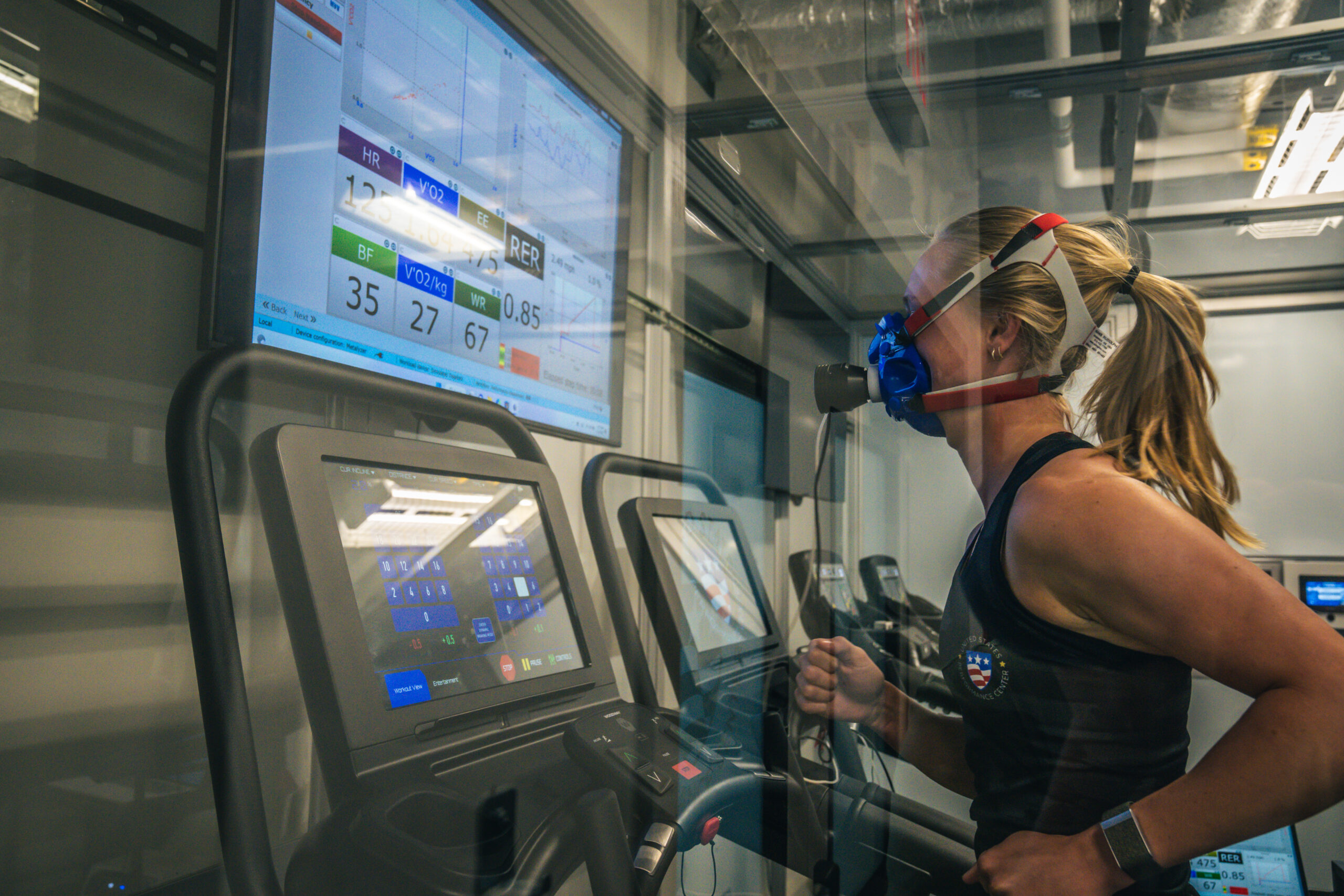How the U.S. Performance Center is Changing the Olympic Movement
Charlotte facility is becoming a popular spot for national governing bodies
Posted On: January 12, 2024 By :Supporting the U.S. Olympic movement runs in the Belk family, which is known throughout the South for its department stores that anchor malls throughout the region.
Irwin Belk was a volunteer member of the United States Olympic Committee for more than four decades, receiving the Olympic Order in 2002 at the Olympic Winter Games in Salt Lake City. By the time the 2012 Olympic Summer Games in London rolled around, he was profiled by NBC as having “been to more Olympics than most anyone alive.”
To say the Olympic movement remains important to the Belk family is an understatement. Irwin’s grandson, Ike Belk, is working with David Koerner in establishing the U.S. Performance Center in Charlotte as one of the biggest facilitators of Olympic dreams.
“When David and I were kind of going over how we want to start our business and what our goals would be, we were sitting in a — I think it was a Starbucks parking lot actually — having a call with (former USOPC administrator) Alicia McConnell,” Belk said. “We wanted to be associated and a part of the journey of the Olympic dream. Dave and I are both athletes so we hold that to the higher standard and it’s an amazing thing, athletes in general and their journey of how they get to the Olympics.”
That idea led to the creation of the performance center. The venue opened in 2013, was designated as a Community Olympic Development Program by the USOC in 2015 and over the past few years has been used by more than a dozen national governing bodies, including becoming the National Training Center for USA Field Hockey and USA Taekwondo.
“It really comes down to giving the athletes the best opportunity to succeed and making their dream come true and going to the Olympics,” Belk said. “We try and take care of the athletes the best anyone can do. That is our main goal — athletes first and supporting them and in the organization.”

Going All-In at the USPC
USA Field Hockey first explored the idea of moving to the USPC in 2020, when it was looking for a new high-performance venue for the national teams. The NGB moved to Charlotte in 2021 and has its own purpose-built field that opened in September of this year.
“For the athletes to have a home base is pretty unique among national governing bodies,” USA Field Hockey Chief Executive Officer Simon Hoskins said. “To have their own home where they can train every day, we host competitions there as well, the athletes are really moved by having their own facility.”
Hoskins said the USPC also gives USA Field Hockey “substantial financial resources to allow us to bring in teams,” for exhibition matches, such as New Zealand at the end of this year, to further the NGB’s experience against other international teams.
“Ike and David absolutely believe in the Olympic movement,” Hoskins said, which helped convince him to make the case to his board of directors and other stakeholders that moving all USA Field Hockey operations to Charlotte was the best decision for the NGB. “These guys believe in the athletes so much. They really want to make this happen.
“Their vision is so big that it’s sometimes hard to get your head around it,” Hoskins added, only half-jokingly. “The number of times I heard it’s too good to be true as I was trying to go through it myself. … (but) it’s not too good to be true, we’re super happy about it.”

Within a year after USA Field Hockey moved operations to Charlotte, USA Taekwondo followed.
“The number of amazing services that are at their fingertips at all times — if there’s something that is not provided, they will make it happen,” Christy Strong Simmons said. “I talked to our CEO (Steve McNally) yesterday and he said it’s the best decision we’ve ever made on behalf of athletes by USA Taekwondo.”
Having the variety of high-performance services available to athletes is also a boost for smaller NGBs that traditionally would have had trouble economically to make those things possible.
“It’s really a very unique, almost collegiate-level training experience unique from anything else that’s going on in the country,” said Strong Simmons. “The services they provide are extensive — sport psychology, nutrition, doctors, they have this incredible state-of-the-art facility they’re training in. So much is being provided that an NGB like USA Taekwondo couldn’t help but give our athletes that opportunity because there’s no way on our own we could provide that to them.”
It’s those services precisely that Belk and Koerner were focusing on, spending many a trip in Colorado Springs over the years meeting with NGBs and finding out what was needed when they were in the planning process. The results that USA Field Hockey and USA Taekwondo have experienced has also helped in the selling process of why groups should move more operations to Charlotte.
“The success that they’re having and the setups that they have — and we keep building with them every day,” Belk said. “They’re almost a sales force for us back into the movement, it was really exciting to see Simon and Steve really promote us in a really positive light.”
From Football to Artistic Swimming
Even NGBs that are not at the USPC full-time have the opportunity for partnerships. The USPC is home to USA Football’s high-performance activities and will aid in the identification and development of current and future national team athletes. The USPC also hosted several USA Football events in 2023. USA Archery has opened a new high performance training center at the venue, which will serve as the home of the national elite program.
Even without a pool on site, USA Artistic Swimming athletes have benefited from the USPC.
“The opportunity that’s being presented by the U.S. Performance Center is very funding-focused,” said USAS Chief Executive Officer Adam Andrasko. “They’re pumping in value-in-kind services and true money to support NGBs in their execution and achievements. And you’re seeing that in the successes of what field hockey is doing and taekwondo is doing.
“They’re training athletes, they’re testing athletes, they’re helping athletes recover at a greater rate if we were doing it on our own. You’re seeing things from them that are a little unique, but the uniqueness is very much direct funding and really strong direct resources.”

It’s not only summer NGBs as well. USA Bobsled & Skeleton athletes use the venue, which is putting in a push facility for athletes to work on their starts in the offseason.
“It’s great to be surrounded by a lot of folks who have the same goal in mind, representing Team USA and supporting programs,” said USA Bobsled & Skeleton Chief Executive Officer Aron McGuire. “We’re limited to Lake Placid and Park City because of the tracks that are there. The Charlotte facility exposes us to a whole new demographic and geographic location for recruiting and providing another opportunity for athletes to train and get into sports.”
Boosting Charlotte’s Profile
There is an impact on the region as well with having athletes living in the Charlotte area. Several USA Field Hockey players work as assistant coaches for high school and developmental programs in addition to their training. USA Taekwondo has some staff still in Colorado Springs, while the high-performance staff and McNally are in Charlotte.
“It was a lot of coordination to try and get everybody there,” Strong Simmons said. “Some people had homes they had to sell and homes they had to buy. We had a good concentration of athletes in Colorado Springs … In the end everybody agreed that it looked like a really good opportunity and it’s turned out to be an excellent opportunity.”
Belk said he believes around 140,000 room nights were booked last year from events at the USPC. “Having them entrenched into the community is huge for inspiring the next athletes that are coming up trying to be Olympians themselves, knowing that there’s an Olympic athlete that lives in my community and they’re the best players in the world just living right here,” he said.
There are 17 NGBs who use the complex “but that number could go up,” Belk said. For many of the NGBs who use the complex, one theme has emerged: The thinking that it was almost too good to be true, but turning out to be even more than they would have imagined.
“We’re here to be an asset and let everyone know North Carolina can be a home base and be a great place and a platform for athletes to thrive off of,” Belk said, hinting that when it comes to the future, “I definitely have further aspirations — (but) I don’t know if I can say that now.”
Posted in: Artistic Swimming, Field Hockey, Main Feature, National Governing Body, Olympic Sports